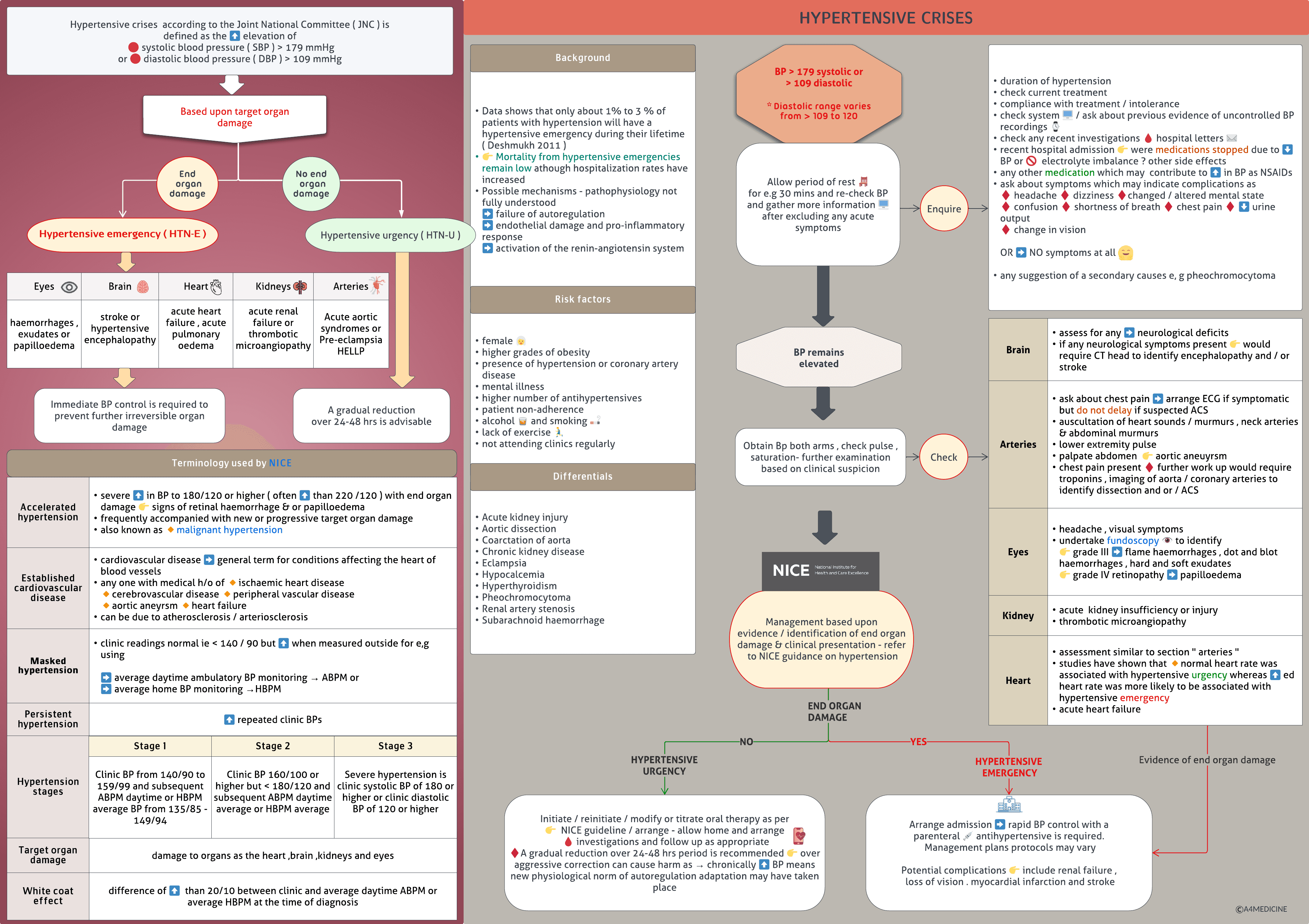Download A4Medicine Mobile App
Empower Your RCGP AKT Journey: Master the MCQs with Us!

Hypertensive crises according to the Joint National Committee ( JNC ) is defined as the :arrow_up: elevation of :red_circle: systolic blood pressure ( SBP ) > 179 mmHg or :red_circle: diastolic blood pressure ( DBP ) > 109 mmHg.
hemorrhages , exudates or papilloedema stroke or hypertensive encephalopathy acute heart failure , acute pulmonary oedema acute renal failure or thrombotic microangiopathy Acute aortic syndromes or Pre-eclampsia HELLP
Immediate BP control is required to prevent further irreversible organ damage.
Accelerated hypertension severe :arrow_up: in BP to 180/120 or higher ( often :arrow_up: than 220 /120 ) with end organ damage :point_right: signs of retinal haemorrhage & or papilloedema
frequently accompanied with new or progressive target organ damage
also known as :small_orange_diamond:malignant hypertension
Established cardiovascular disease cardiovascular disease :arrow_right: general term for conditions affecting the heart of blood vessels
any one with medical h/o of :small_orange_diamond:ischaemic heart disease :small_orange_diamond:cerebrovascular disease :small_orange_diamond:peripheral vascular disease :small_orange_diamond:aortic aneyrsm :small_orange_diamond:heart failure
can be due to atherosclerosis / arteriosclerosis
Data shows that only about 1% to 3 % of patients with hypertension will have a hypertensive emergency during their lifetime ( Deshmukh 2011 )
:point_right: Mortality from hypertensive emergencies remain low athough hospitalization rates have increased
Possible...
Try our Free Plan to get the full article.